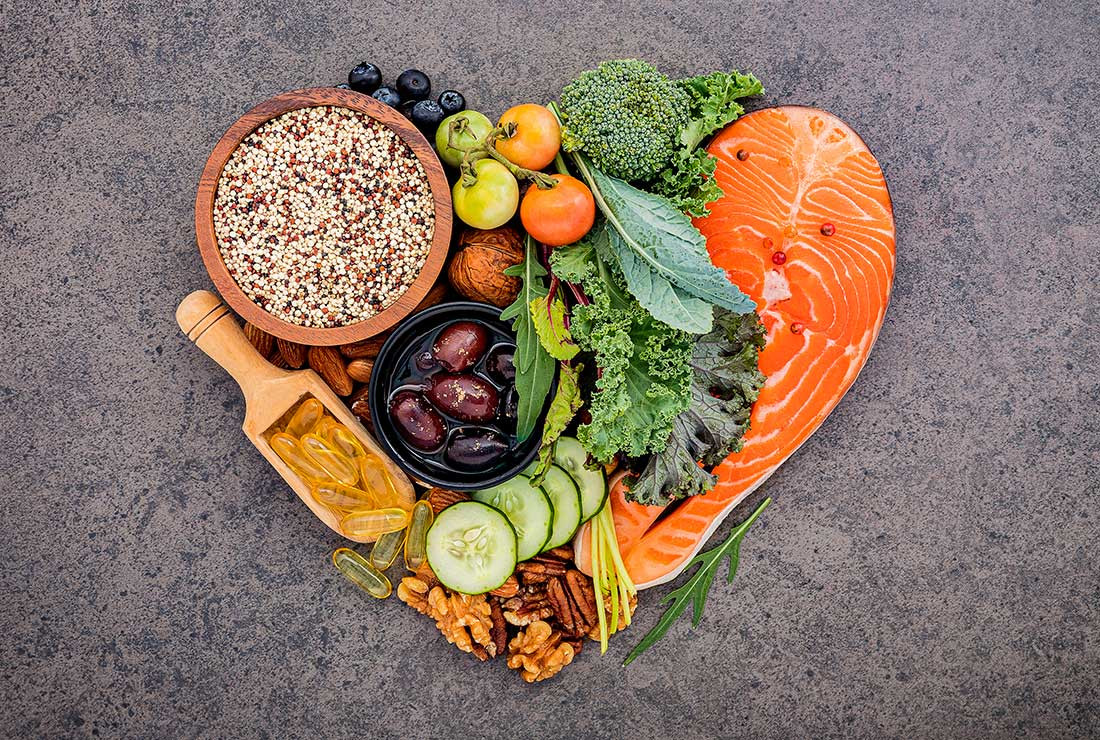5 Creative Plant Based Chicken Dishes That Go Beyond the Basics
5 Creative Plant Based Chicken Dishes That Go Beyond the Basics
Blog Article
All Concerning Healthy And Balanced Food: Advantages of Checking Out Plant Based Choices
The conversation surrounding plant-based diet plans has actually acquired substantial attention recently. Numerous people are exploring the possible health and wellness benefits, dietary advantages, and environmental effects connected with these dietary choices. As people end up being much more knowledgeable about their food's impact on wellness and sustainability, inquiries develop about the functionalities of adopting such a way of living. What details modifications can one expect, and just how might these choices reshape not just individual wellness but additionally the earth's future?
Recognizing Plant-Based Diet Regimens
Several individuals associate plant-based diet plans mostly with vegetarianism or veganism, these diets can include a large variety of eating patterns that focus on whole, minimally processed plant foods. Such diets commonly include fruits, vegetables, whole grains, nuts, seeds, and legumes, while restricting or eliminating animal items. This flexibility permits people to customize their nutritional options according to dietary demands and individual choices. Some might adopt a mostly plant-based diet while still periodically consuming meat or dairy, commonly described as a flexitarian technique. The emphasis remains on including even more plant foods, which can lead to a diverse variety of tastes and dishes. Comprehending these various interpretations of plant-based consuming is vital for appreciating its accessibility and charm in contemporary food culture.
Wellness Advantages of Plant-Based Foods
The health advantages of plant-based foods are substantial, supplying a nutrient thickness advantage that sustains total wellness. Research indicates that these foods can boost heart health and wellness and play an essential duty in efficient weight monitoring. By including a lot more plant-based alternatives, people may enhance their dietary options and promote lasting health and wellness.
Nutrient Density Advantage
Nutrient thickness plays a necessary function in the wellness benefits of plant-based foods, making them an engaging option for those seeking a well balanced diet regimen. Plant-based foods, such as fruits, veggies, beans, nuts, and entire grains, are usually rich in important vitamins, minerals, and antioxidants while being reduced in calories. This high nutrient thickness enables people to take in less calories while still satisfying their dietary requirements. Additionally, these foods are loaded with dietary fiber, advertising digestion wellness and helping in weight monitoring. By incorporating nutrient-dense plant-based options, consumers can enhance their overall health, sustain their body immune systems, and reduce the risk of chronic diseases. Ultimately, the nutrient density of plant-based foods underscores their importance in a health-conscious way of life.
Heart Health Renovation
:max_bytes(150000):strip_icc()/VWF-Plant-Based-Eating-V6-edit1-0a05c9c9c14e489b8e981fbb0221d49e.jpg)
Weight Administration Assistance
Along with advertising heart health and wellness, a plant-based diet plan can considerably assist in weight administration. This dietary method emphasizes entire foods such as fruits, vegetables, beans, nuts, and whole grains, which are generally reduced in calories and higher in fiber compared to animal-based products. The high fiber content aids enhance satiation, decreasing general calorie intake. Plant-based diets are commonly abundant in vital nutrients while reduced in unhealthy fats, making it much easier to maintain a healthy weight. Research study shows that individuals who take on a plant-based way of life often tend to have lower body mass indexes (BMIs) and experience more effective weight-loss contrasted to those that consume meat-heavy diet plans. Subsequently, embracing plant-based choices is a critical choice for effective weight administration
Nutritional Value of Plant-Based Components
Plant-based active ingredients are abundant in essential nutrients, providing a varied array of vitamins, minerals, and antioxidants that add to total health. A contrast of healthy protein resources discloses that while animal products are typically checked out as superior, many plant-based choices supply appropriate healthy protein and other advantageous compounds. Comprehending the nutritional value of these ingredients can help people make educated nutritional selections.
Essential Nutrients in Plants
Nutrient-rich ingredients located in plants supply a varied range of vital minerals and vitamins that contribute substantially to overall health. These active ingredients are abundant in vitamins A, C, and K, which support immune function, vision, and blood clot, specifically. Furthermore, plants offer vital minerals such as potassium, magnesium, and calcium, essential for heart health, muscle mass function, and bone strength. The presence of fiber in plant-based foods help digestion and advertises a healthy gut microbiome. Anti-oxidants, discovered abundantly in veggies and fruits, aid battle oxidative stress and lower inflammation. Numerous plant foods are low in calories yet high in nutrients, making them an exceptional selection for those looking for to preserve a healthy and balanced weight while making sure excellent nutrient consumption.

Contrasting Healthy Protein Resources
Healthy protein resources differ significantly in their dietary accounts, with plant-based ingredients supplying distinct advantages. Unlike animal proteins, which frequently contain hydrogenated fats and cholesterol, plant healthy proteins have a tendency to be lower in these unhealthy components. Legumes, nuts, seeds, and whole grains are rich in important amino acids, fiber, vitamins, and minerals. For instance, lentils provide high healthy protein see this page web content along with substantial iron and folate, while quinoa is a total protein, supplying all nine important amino acids. In addition, plant-based healthy proteins are typically accompanied by anti-oxidants and phytochemicals that support general health and wellness. The change to plant-based protein resources not only improves nutritional consumption but additionally aligns with sustainable nutritional methods, reducing ecological impact and advertising long-term wellness benefits.
Ecological Impact of Plant-Based Consuming
As recognition of climate adjustment grows, numerous individuals are checking out lasting dietary selections that can substantially lessen their ecological footprint. Plant-based eating has actually become a substantial contributor to minimizing greenhouse gas emissions, which are mainly related to livestock manufacturing. The farming of fruits, vegetables, veggies, and grains typically needs less sources, such as water and land, compared to pet farming. Additionally, plant-based diet plans can cause lowered deforestation, as less land is needed for grazing animals or expanding pet feed. By moving in the direction of plant-based alternatives, consumers can support biodiversity and promote much healthier communities. Generally, welcoming plant-based consuming not just advantages individual health but also represents a crucial step towards ecological sustainability and preservation initiatives.
Conquering Common Misconceptions
While several individuals recognize the benefits of a plant-based diet, several misconceptions typically prevent them from completely accepting this way of life. An usual belief is that plant-based diet plans lack sufficient protein; however, many plant sources, such as legumes, nuts, and tofu, provide ample healthy protein. In addition, some think that this diet regimen is costly, when in truth, staples like beans, rice, and seasonal veggies can be quite economical. Another misunderstanding is that plant-based consuming is overly limiting, whereas it really offers a varied selection of foods and tastes. Finally, many stress that a plant-based diet may bring about shortages, yet with proper preparation, individuals can get all needed nutrients, including minerals and vitamins, while enjoying a variety of tasty meals.
Tips for Transitioning to a Plant-Based Lifestyle
Making the change to a plant-based way of living can be an enhancing experience, though it typically calls for some assistance to official source browse the initial adjustments. First, people are urged to start slowly, incorporating more fruits, veggies, legumes, and entire grains into their meals while minimizing meat and dairy usage. Meal preparation is important; preparing an once a week food selection can help reduce the change and avoid last-minute undesirable selections. Exploring brand-new recipes and cooking techniques can also improve the experience and keep enjoyment about plant-based consuming. In addition, signing up with support groups or neighborhoods can give motivation and share valuable suggestions. Lastly, staying informed regarding nutrition assurances balanced meals, preventing deficiencies while fostering a healthy, rewarding plant-based way of life.
Delicious Plant-Based Dish Ideas
Exploring tasty plant-based dish ideas can influence individuals to accept an extra healthy diet regimen. One popular choice is a hearty quinoa salad, featuring cherry tomatoes, cucumber, and a spicy lemon-tahini clothing. Another favorite is a savory lentil stew, packed with carrots, celery, and aromatic natural herbs, perfect for a reassuring supper. For breakfast, overnight oats made with almond milk, chia seeds, and topped with fresh berries give a nutritious start to the day. Additionally, a lively veggie stir-fry with tofu and a variety of colorful veggies can be a quick yet pleasing meal. Luscious avocado toast on whole-grain bread, sprinkled with seeds and flavors, uses a straightforward yet savory snack. These meals display the range and splendor of plant-based consuming.

Frequently Asked Questions
Can a Plant-Based Diet Plan Give Sufficient Protein?
The inquiry of whether a plant-based diet plan can offer sufficient healthy protein is typical. Various resources, including legumes, nuts, seeds, and entire grains, can satisfy protein requires efficiently, supporting a nutritious and well balanced diet for individuals.
Are Plant-Based Diet Regimens Ideal for Children?
The viability of plant-based diet plans for youngsters relies on cautious preparation. Appropriate nutrients must be ensured, including healthy proteins, vitamins, and minerals. With proper guidance, such diet plans can sustain healthy development and development in youngsters.
How Do I Eat in restaurants on a Plant-Based Diet?
Eating in restaurants on a plant-based diet regimen involves seeking dining establishments with diverse menus, requesting for adjustments, and discovering vegan-friendly choices. Preparation in advance and communicating dietary preferences can boost the dining experience while preserving nutritional selections.
What Are Typical Allergens in Plant-Based Foods?
Typical irritants in plant-based foods include soy, gluten, nuts, and seeds - BBQ Sauces. People complying with a plant-based diet plan should be mindful of these irritants and review labels thoroughly to prevent unfavorable responses and assure secure intake
Can Plant-Based Diets Assist With Fat Burning?
Research suggests that embracing a plant-based diet regimen might facilitate weight-loss because of its generally reduced calorie thickness and greater fiber material. This combination can improve satiety, assisting individuals manage their caloric intake efficiently. Numerous people associate plant-based diets mostly with vegetarianism or veganism, these diet regimens can encompass a wide array of consuming patterns that focus on whole, minimally processed plant foods. Nutrient thickness plays an essential role in the health benefits of plant-based foods, making them an engaging selection for those looking for a well balanced diet plan. Plant-based diet plans have been revealed to substantially boost heart health and wellness, as they commonly contain elements that sustain cardio function. More hints In addition to advertising heart health, a plant-based diet plan can significantly aid in weight monitoring. A typical idea is that plant-based diets lack enough protein; nevertheless, numerous plant resources, such as vegetables, nuts, and tofu, offer adequate protein.
Report this page